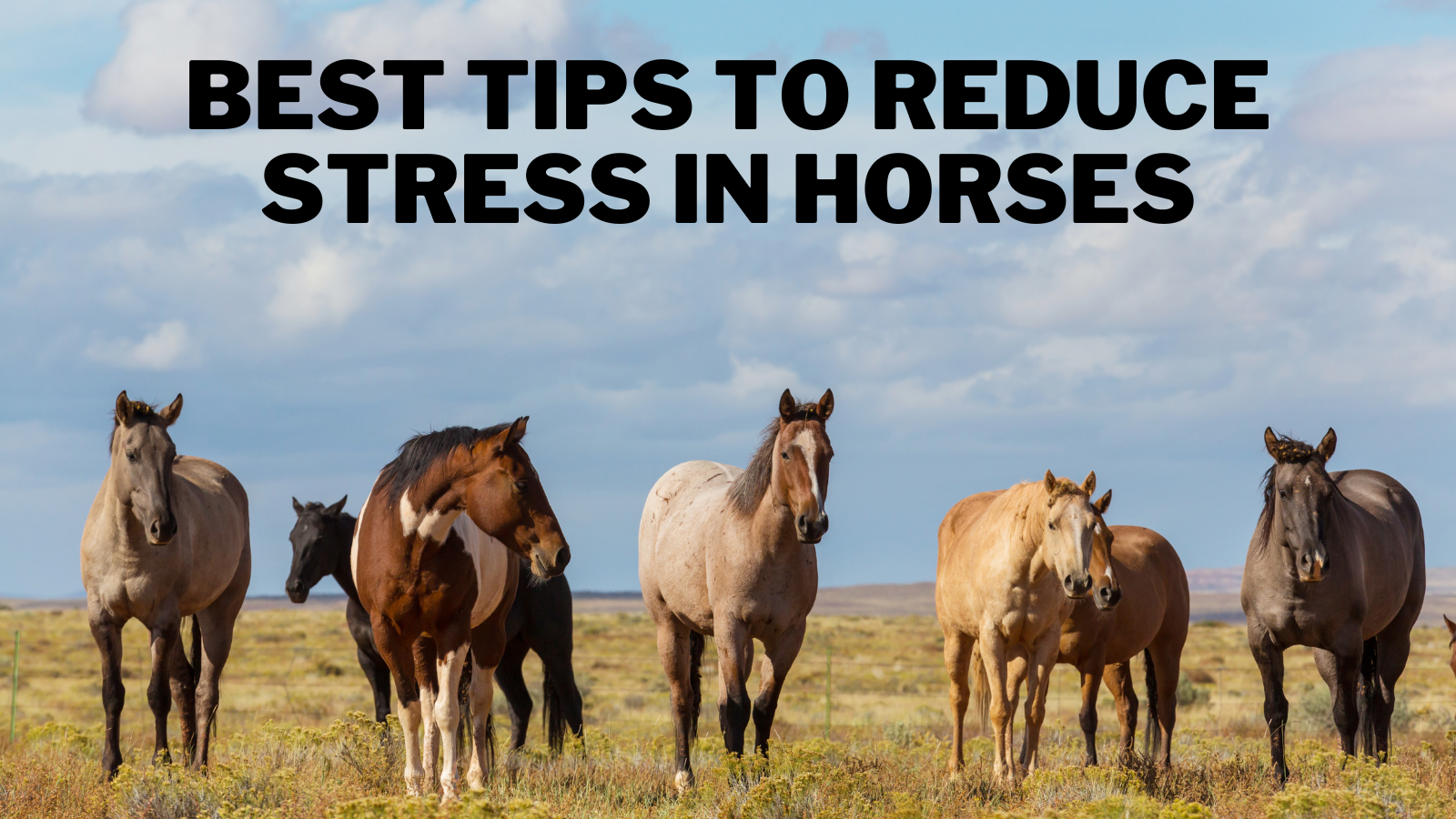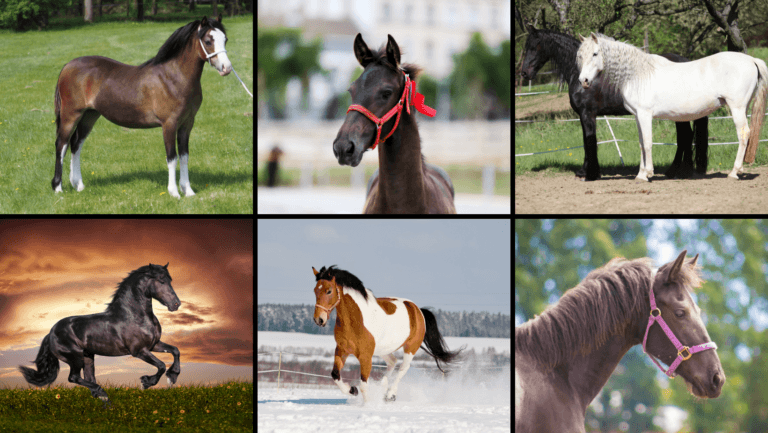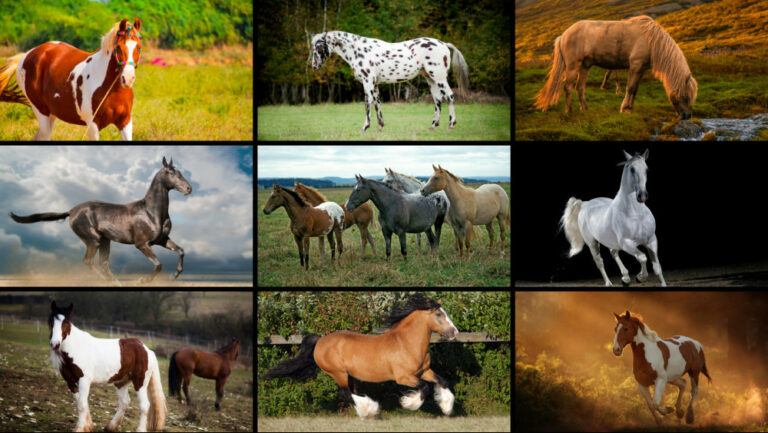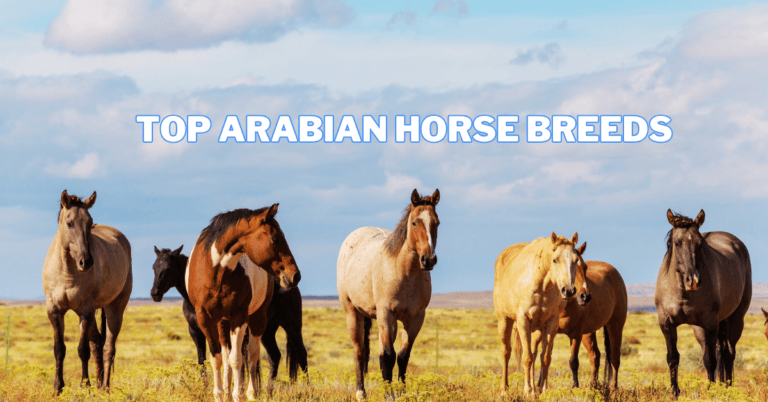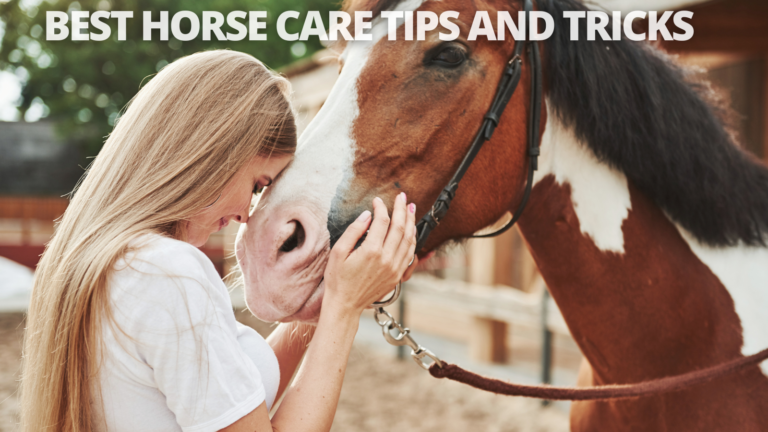Best Tips To Reduce Stress In Horses
Best Tips To Reduce Stress In Horses
Horses are magnificent animals that can bring us so much joy and companionship but can also be a source of stress.
Many factors can contribute to stress in your relationship with your horse, whether you are a seasoned equestrian or a beginner.
From performance anxiety to barn drama, finding ways to reduce stress for you and your horse is important.
This blog post will explore tips to help you reduce stress in your horse. These tips include everything from creating a calm environment to implementing relaxation techniques.
By following these tips, you can create a more positive and peaceful relationship with your horse, allowing you both to enjoy your time together to the fullest.
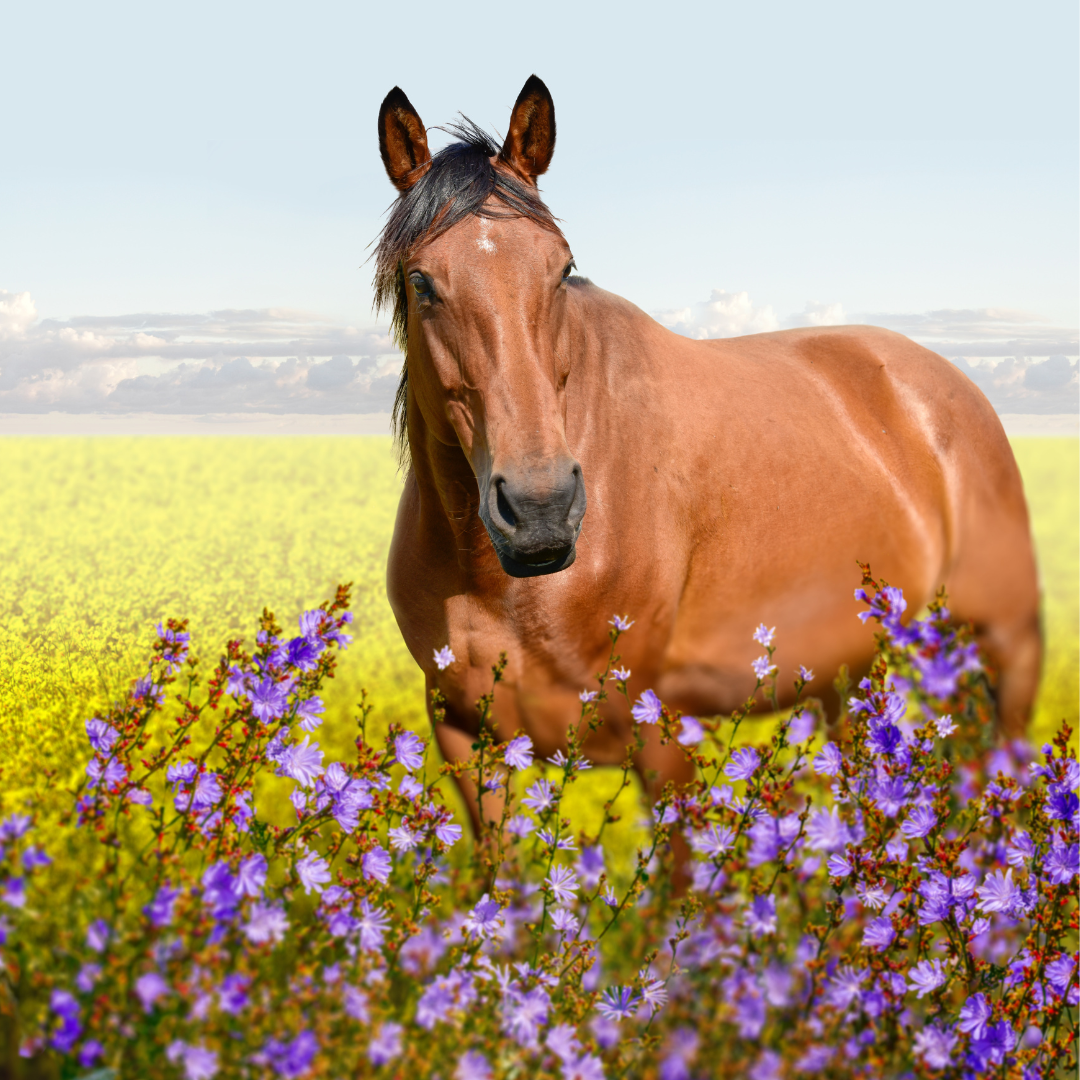
Importance Of Reducing Stress In Horses
Horses, like humans, can experience stress, and horse owners need to reduce stress in their horses.
Stress can negatively impact a horse's physical health, leading to health issues like colic, ulcers, and laminitis.
It can also negatively affect their mental health, leading to anxiety and depression. In addition, stress can negatively impact a horse's performance, whether in the show ring, on the trail, or during training.
Reducing stress in horses is also important for building relationships between horses and their owners or handlers.
By providing a safe and comfortable environment and spending quality time with their horse, owners can improve their relationship with their horses and foster a deeper connection.
Ultimately, reducing stress can improve a horse's quality of life. A happy and healthy horse is more likely to live a long and fulfilling life, and reducing stress can play a significant role in achieving this goal.
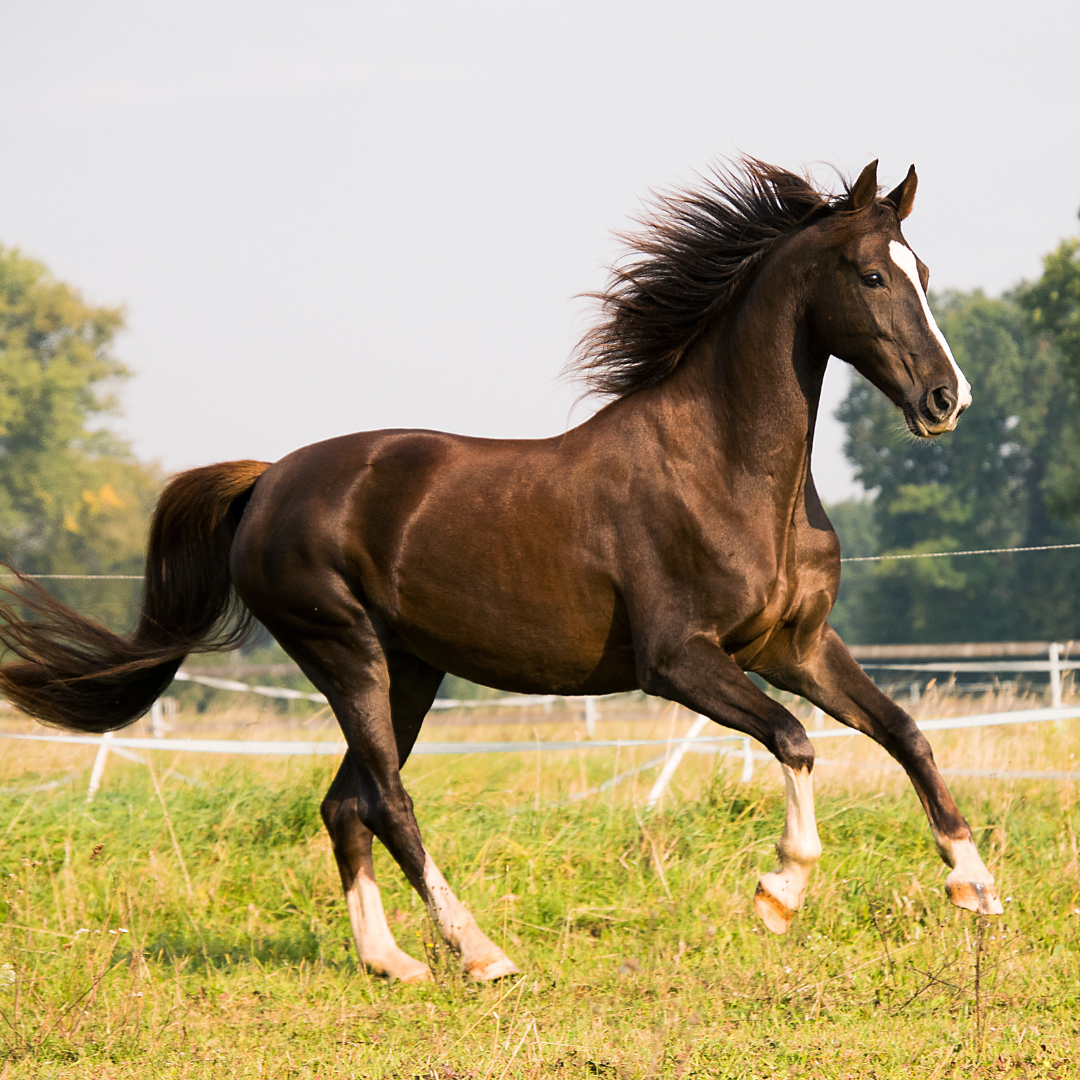
Symptoms Of Stress In Horses
Horses can experience stress due to various factors, such as changes in routine, environment, social interactions, or health issues.
1. Changes In Behaviour
Changes in behaviour are one of the most common symptoms of stress in horses. When a horse is stressed, it may become more aggressive, fearful, or nervous. They may lash out at other horses or their handlers or withdraw and become more introverted.
Stressed horses may also become less responsive to cues and commands, making it more difficult for their handlers to communicate with them effectively. They may become distracted or agitated, making it harder to train or ride them.
Other changes in behaviour that can indicate stress include increased pacing, restlessness, or circling, as well as reduced interest in socializing with other horses.
Horses may also become more clingy or attached to their handlers, seeking comfort and reassurance.
2. Loss Of Appetite
Loss of appetite is another common symptom of stress in horses. When stressed, a horse may become less interested in food or picky about its food. This can lead to weight loss and other health problems like digestive issues and malnutrition.
Stressed horses may also exhibit other signs of discomfort or pain, such as pawing at the ground or kicking at their stomach.
They may become lazy or disinterested in their surroundings and spend more time lying down or resting.
Horse owners must regularly monitor their horses' appetite and eating habits, especially during stress.
If a horse is not eating or showing discomfort, it's important to consult a veterinarian to rule out any underlying health issues.
3. Digestive Issues
Stress can significantly impact a horse's digestive system and lead to various digestive issues, including colic, ulcers, and diarrhea.
When a horse is stressed, their body produces more cortisol, which can interfere with digestion and cause inflammation in the gut.
One of the most common digestive issues caused by stress is colic, which refers to abdominal pain and discomfort.
Various factors, including stress, changes in diet or routine, and dehydration, can cause colics. Horses with colics may exhibit symptoms such as pawing at the ground, lying down and getting up repeatedly, rolling, and stretching out.
Stress can also contribute to developing ulcers in horses, which are sores in the stomach lining. Ulcers can cause pain and discomfort and lead to loss of appetite and weight.
Horses with ulcers may also exhibit behavioural changes, such as becoming more irritable or difficult to handle.
Another digestive issue that can be caused by stress is diarrhea, which can be caused by inflammation in the gut or changes in diet.
Horses with diarrhea may have loose or watery stools and become dehydrated if the condition persists.
4. Restlessness
Restlessness is a common symptom of stress in horses. When a horse is stressed, it may have difficulty settling down or standing still.
They may pace back and forth, move around in circles, paw at the ground, or exhibit other repetitive behaviours.
Restlessness is often a sign that a horse is experiencing discomfort or anxiety. They may be feeling frustrated or bored or anticipating something causing them stress, such as a change in routine or a new environment.
In addition to pacing and pawing, horses may exhibit other repetitive behaviours when stressed. For example, they may weave back and forth or crib, which involves biting down on a solid object and sucking in the air.
These behaviours can cause physical damage to the horse's teeth and digestive system over time.
5. Respiratory Issues
Stress can significantly impact a horse's respiratory system and lead to various respiratory issues, including difficulty breathing, coughing, and nasal discharge.
When a horse is stressed, its body produces more cortisol, weakening the immune system and making it more susceptible to respiratory infections.
Stress can also cause inflammation in the respiratory tract, leading to coughing and other respiratory symptoms.
Stressed horses may also be more likely to develop conditions such as heaves, a chronic respiratory illness similar to asthma in humans.
Heaves can cause difficulty breathing, coughing, and other respiratory symptoms and can be triggered by stress, allergies, or other environmental factors.
To help prevent respiratory issues in horses caused by stress, owners can take steps to minimize stress and provide a clean and healthy environment.
This may include providing regular turnout time in a well-ventilated area, avoiding exposure to dust and other respiratory irritants, and ensuring their horse's access to clean water and a healthy diet.
6. Excessive Sweating
Excessive sweating is another common symptom of stress in horses. When a horse is stressed, their body releases adrenaline, which can cause an increase in heart rate and blood pressure, leading to sweating.
Horses may sweat excessively even when not engaged in physical activity, such as standing in a stall or being led from one area to another. This can signify that the horse is experiencing significant stress or anxiety.
Excessive sweating can lead to dehydration and electrolyte imbalances, which can cause additional health problems. Owners must monitor their horses' hydration levels and ensure they can access clean, fresh water.
7. Skin Issues
Stress can significantly impact a horse's health and cause skin problems, including hives, rashes, and other dermatitis.
When a horse is stressed, its body releases cortisol, suppressing the immune system and making it more susceptible to skin infections and other skin problems.
Additionally, stress can cause changes in the skin's pH balance, leading to inflammation, itching, and other symptoms.
Stress can also cause horses to develop hives, which are raised, and itchy bumps on the skin are caused by an allergic reaction or other environmental factors. Horses with hives may exhibit scratching, rubbing, or biting behaviours to alleviate discomfort.
8. Changes In Posture
Changes in posture can be a subtle but important indicator of stress in horses. A stressed horse may exhibit changes in its stance, such as standing with its head down or tucked in or with its ears pinned back.
When stressed, a horse may exhibit defensive or submissive body language, such as standing with its head down or tucked in, which can signify feeling anxious or fearful.
Similarly, ears pinned back against the head can indicate discomfort or anxiety and may be accompanied by other behaviours such as tail swishing or foot stomping.
9. Increased Heart Rate
When a horse experiences stress, its natural response is to release adrenaline and other stress hormones, which can cause its heart rate to increase.
This increase in heart rate is a normal physiological response to stress and is designed to help prepare the body for a “fight or flight” response.
While an increased heart rate can be beneficial in certain situations, such as during exercise or competition, chronic or prolonged stress can lead to an increased heart rate even when the horse is at rest.
This can strain the horse's cardiovascular system, leading to health problems such as the increased risk of heart disease and decreased overall endurance.
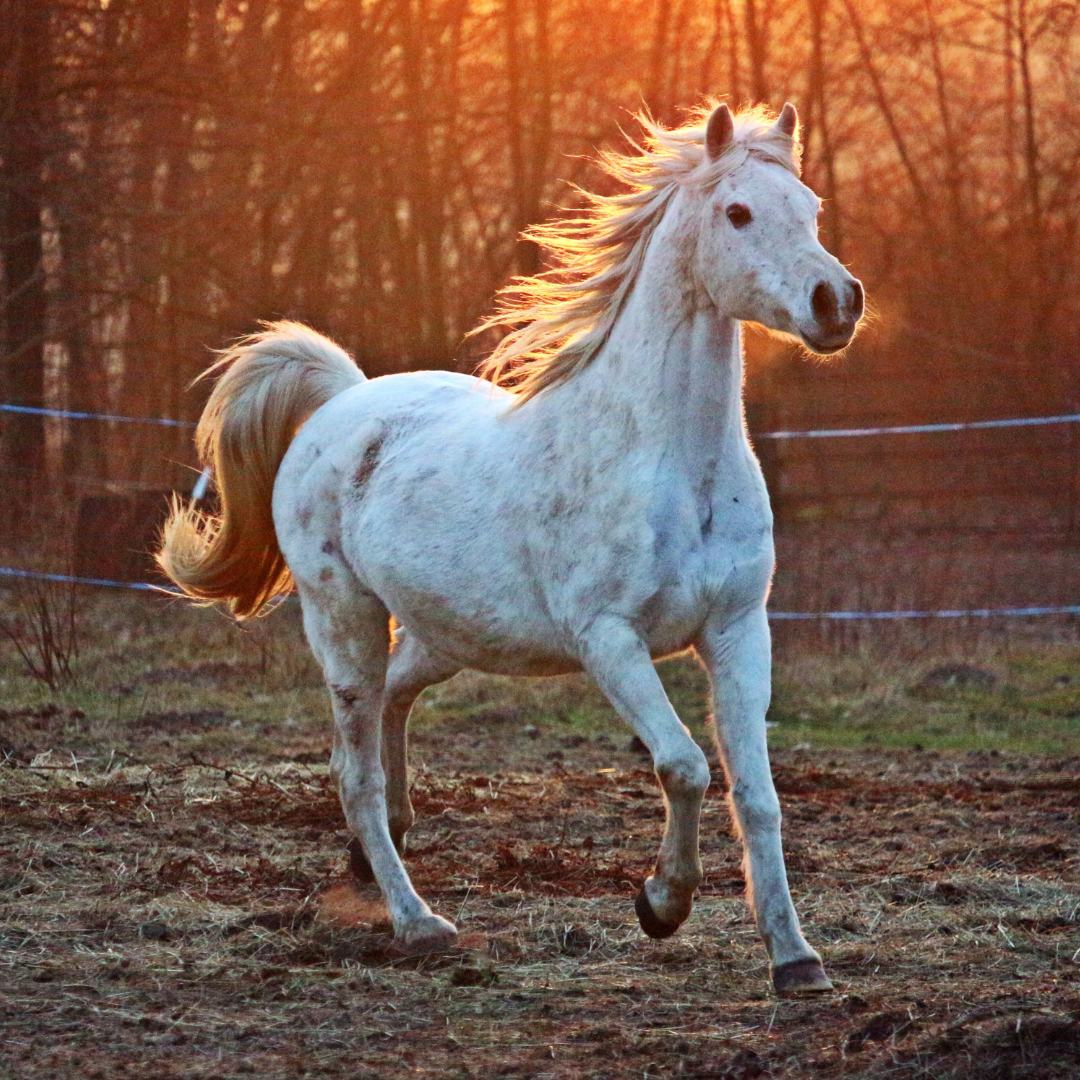
Tips To Reduce Stress In Horses
Reducing stress in horses is important for their health and well-being.
1. Provide Adequate Turnout Time
Horses are social animals that naturally live in herds. They have a strong social hierarchy and must interact with other horses to maintain their physical and mental well-being.
Providing adequate turnout time in a safe and secure environment can help horses meet this need for social interaction, which in turn can reduce stress.
Turnout time allows horses to move freely, graze, and interact with other horses. It also provides them with mental stimulation, which can reduce boredom and stress.
Horses kept in stalls or confined spaces for extended periods can become stressed and develop vices or behavioural problems.
2. Establish A Consistent Routine
Horses thrive on routine and structure, providing security and stability. A consistent daily routine can help reduce stress in horses by providing them with a predictable schedule of activities and reducing uncertainty and anxiety.
A consistent routine should include regular feeding times, turnout schedules, grooming sessions, training sessions, and other activities important for the horse's physical and mental well-being.
Horses should be fed at the same time every day, and their turnout schedule should consistently provide them with regular opportunities to exercise and socialize with other horses.
Grooming sessions can also be a great way to establish a routine and bond with your horse. Consistent grooming can help reduce stress, promote relaxation, and identify potential health issues.
Training sessions should also be consistent and structured to give horses clear expectations and goals.
3. Use Positive Reinforcement Training
Positive reinforcement training is a training technique that involves rewarding desired behaviours rather than punishing undesirable behaviours.
It can be a highly effective way to train horses and help reduce stress and anxiety associated with training.
Positive reinforcement training rewards horses for desired behaviours using treats, praise, or other rewards.
This approach can help create a positive learning experience for the horse, increasing its confidence and reducing stress and anxiety.
Positive reinforcement training can teach horses various skills, including basic manners, trail riding, jumping, and more advanced riding skills.
It can also help horses overcome fears or phobias, such as loading into a trailer or crossing a bridge.
4. Offer Mental Stimulation
Offering mental stimulation is an important way to reduce horse stress. Horses are intelligent animals and need mental stimulation to keep them engaged and happy.
Providing toys, enrichment activities, or puzzles can help reduce stress by giving horses something to do and keeping their minds occupied.
Toys and enrichment activities can include jolly balls, hanging toys, and treat dispensers. These toys can be placed in a horse's stall or turnout area to provide mental stimulation and help reduce boredom.
Puzzles are another great way to provide mental stimulation for horses. Puzzles can include food dispensing toys or slow feeders, which can help promote natural grazing behaviour and keep horses occupied for longer periods.
5. Provide A Comfortable Environment
Providing a comfortable environment is essential to reduce horse stress. A relaxed atmosphere includes appropriate bedding, adequate ventilation, clean water and food access.
Horses spend significant time in their stalls, or turnout areas, and a comfortable environment can help reduce stress and promote their overall well-being.
Appropriate bedding is an important component of a comfortable environment for horses. The type of bedding used can depend on various factors, such as the horse's needs and any respiratory or allergy issues. Common bedding types include straws, shavings, or wood pellets.
Adequate ventilation is also important to ensure that horses can access fresh air and a comfortable temperature.
Stalls should be well-ventilated to prevent respiratory issues and reduce the risk of respiratory infections.
Clean water and food should be readily available to horses at all times. Horses need access to clean water to stay hydrated and healthy.
Food should be provided in appropriate amounts and high quality to ensure that horses receive nutrients.
6. Address Health Issues Promptly
When horses experience health issues or injuries, it can increase stress and anxiety. It's important to address these issues promptly by consulting a veterinarian and following their recommended treatment plan.
This can help improve the horse's physical health and reduce stress levels. Ignoring or delaying treatment can lead to serious health problems and exacerbate the horse's stress.
7. Create A Calm And Soothing Atmosphere
Creating a calm and soothing atmosphere can help horses feel more relaxed and comfortable. Playing soft, calming music or using essential oils with relaxing scents like lavender, chamomile, or peppermint can help reduce stress and anxiety.
Providing a quiet and peaceful environment can also help reduce stress, such as minimizing loud noises or sudden movements around the horse's living area.
Additionally, horses may benefit from a quiet and comfortable space to retreat when feeling overwhelmed or stressed.
8. Develop A Strong Bond With Your Horse
Developing a strong bond with your horse can help reduce stress and create a positive relationship based on trust and mutual respect.
Spending quality time with your horse, such as grooming, hand-walking, or taking them for a leisurely ride, can help build a strong and positive bond.
Positive reinforcement techniques, such as giving treats or praise when your horse exhibits good behaviour, can also help strengthen the bond between you and your horse.
Additionally, being attentive to your horse's needs and responding appropriately to their behaviour can help build trust and create a sense of security.
A strong bond can also help horses feel more comfortable and relaxed in new or challenging situations.

Conclusion
Horses' stress can seriously affect their health, behaviour, and performance. As responsible horse owners, taking steps to minimize stress in our equine companions is important.
This can be achieved through various methods, such as
- Providing adequate turnout time
- Establishing a consistent routine
- Using positive reinforcement training
- Offering mental stimulation
- Creating a comfortable environment
- Monitoring feed and nutrition
- Addressing health issues promptly
- Creating a calm and soothing atmosphere
- Developing a strong bond with your horse
By implementing these tips, we can help our horses lead happy, healthy, and stress-free lives.
I trust you enjoyed this article about the Best Tips To Reduce Stress In Horses. Please stay tuned for more blog posts to come shortly.
JeannetteZ
Your Opinion Is Important To Me
Do you have thoughts, ideas, or questions? I would love to hear from you. Please leave me your questions, experiences, and remarks about this article on the Best Tips To Reduce Stress In Horses in the comments section below. You can also email me at Jeannette@Close-To-Nature.org.
Disclosure
This post may contain affiliate links. I earn from qualifying purchases as an Amazon Associate and other affiliate programs. Please read my full affiliate disclosure.
You might also enjoy these blog posts:
Causes And Effects Of Stress In Horses
Does Drinking Tea Reduce Stress?

